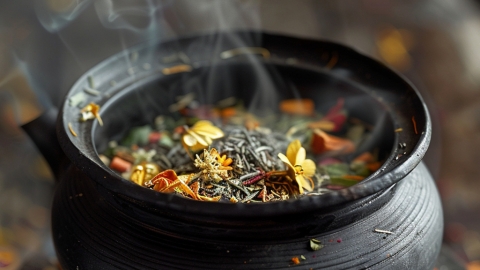What are warming and tonic Chinese herbs?
Generally speaking, warming and tonifying Chinese herbs refer to a category of herbal medicines with warm or hot properties that can replenish the body's yang energy and dispel coldness. They are suitable for regulating individuals with a deficient-cold constitution, but must be used according to proper pattern differentiation. A detailed explanation is as follows:

Warming and tonifying herbs are typically sweet in taste and warm in nature. Their core functions include warming yang and dispelling cold, invigorating qi and nourishing blood, and strengthening the spleen and kidneys. Common examples include ginseng, astragalus, angelica (dang gui), deer antler, longan, and dried ginger. These herbs are effective in regulating symptoms of deficiency-cold such as sensitivity to cold, cold hands and feet, pale complexion, fatigue, shortness of breath, and weak digestion by helping restore the body’s yang energy and improving overall constitution. However, due to their pronounced warming nature, excessive use may lead to internal heat accumulation, causing discomforts such as dry mouth, sore throat, and constipation.
The use of warming and tonifying herbs should follow the principle of pattern differentiation. Individuals with a heat-prone constitution should avoid taking them alone, as this could exacerbate heat-related symptoms. Even those with a deficient-cold constitution should control dosage and avoid blind supplementation. Some warming tonics should be combined with other herbs to balance their properties and prevent excessive heat from any single herb.
In daily use, it is recommended to select warming and tonifying herbs according to one's individual constitution and combine them with mild foods such as whole grains and vegetables to maintain dietary balance. During use, consumption of spicy or raw/cold foods should be reduced to avoid interfering with the herbs’ effectiveness.





